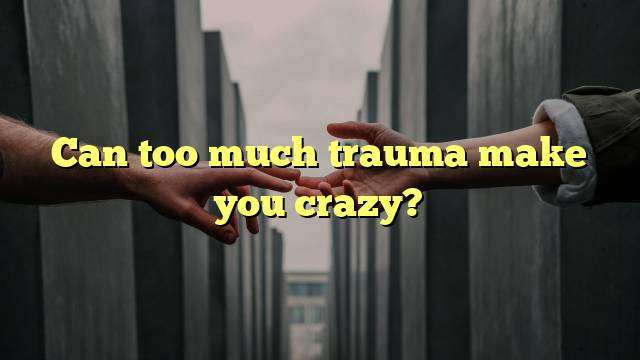Can Too Much Trauma Make You Crazy?
Experts suggest that trauma, particularly severe childhood trauma, can increase the likelihood of someone developing schizophrenia or expressing similar symptoms later in life. It is not, however, a guarantee that trauma will cause schizophrenia. In fact, the majority of individuals who experience trauma in their lives will not develop the disorder.
What is Trauma?
Trauma is defined as an event or experience that causes physical or emotional harm. Physical trauma can include physical abuse, sexual abuse, accidents, and natural disasters. Emotional trauma can include verbal abuse, neglect, and abandonment. A traumatic event can be something that happened to an individual or something that an individual witnessed.
How Does Trauma Impact Mental Health?
When an individual experiences or witnesses a traumatic event, it can have a lasting impact on their mental health. It can cause long-term psychological distress and can lead to mental health issues such as PTSD, depression, and anxiety. Long-term exposure to trauma can also lead to the development of personality disorders, such as borderline personality disorder.
Can Trauma Lead to Schizophrenia?
Research has shown that severe trauma can increase the risk of developing schizophrenia. Severe trauma, such as physical or sexual abuse, neglect, or abandonment, can cause an individual to be more vulnerable to developing the disorder. It is important to note, however, that trauma does not necessarily lead to schizophrenia.
What Are the Symptoms of Schizophrenia?
Schizophrenia is a mental disorder that is characterized by delusions, hallucinations, disorganized thinking, and other symptoms. Common symptoms of schizophrenia include:
- Delusions– false beliefs that are not based in reality
- Hallucinations– hearing or seeing things that aren’t there
- Disorganized thinking– difficulty organizing thoughts and creating logical connections between them
- Disorganized speech– speaking in a rambling or hard-to-understand way
- Cognitive problems– difficulty concentrating, making decisions, and paying attention
- Flat affect– appearing emotionless or having a lack of emotional responses
What Are the Treatment Options for Schizophrenia?
The treatment of schizophrenia typically involves a combination of medication, psychotherapy, and lifestyle changes. Medication can help to reduce the symptoms of schizophrenia and can help to manage the disorder. Psychotherapy can help individuals to cope with the symptoms of schizophrenia and to manage any underlying issues. Finally, lifestyle changes, such as getting enough sleep, eating a healthy diet, and exercising regularly, can help to manage the symptoms of schizophrenia.
Conclusion
Trauma, particularly severe childhood trauma, can increase the risk of developing schizophrenia. It is important to note, however, that trauma does not always lead to schizophrenia. If you or someone you know is struggling with the symptoms of schizophrenia, it is important to seek professional help. With the right treatment, it is possible to manage the symptoms of schizophrenia and to lead a healthy and productive life.




